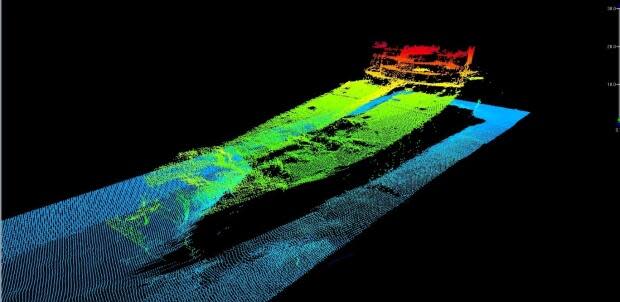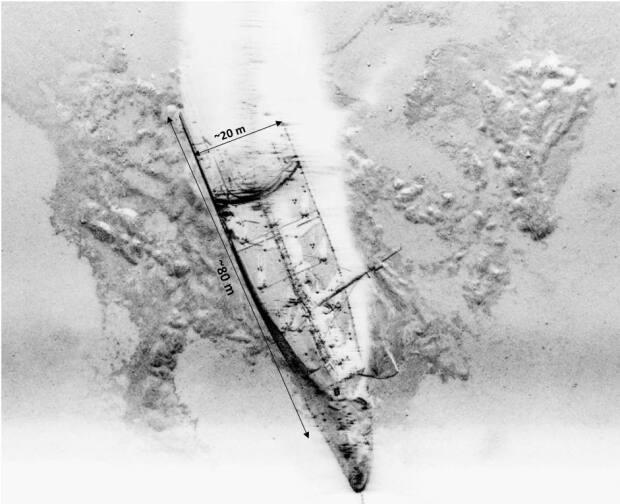Shipwreck found in Flemish Pass could date back to WW II, says expert


A routine geographical seabed survey about 500 kilometres off the coast of Newfoundland has unearthed a sunken ship in the Flemish Pass basin, with crews now beginning work to identify the vessel.
Tom McKeever, research and development manager with Equinor, the oil company who found the wrecked vessel, said the group has done several surveys in the last number of years but has never found anything this unique.
"We weren't looking for it, [but] we came across it," McKeever said Tuesday. "I was very excited."
Using sonar imagery picked up by an autonomous vehicle, McKeever said the steel structure is estimated to be about 80 metres long by 20 metres wide. It was located at a depth of about 1,200 metres.
It's unclear how old the vessel is, but the information has been shared with the Canadian Coast Guard and the provincial government to try to identify the wreck.
"Many of us here in the office and offshore have been using Google to our advantage to try to find out exactly what this vessel might be," McKeever said.
"You'd be amazed at the number of vessels that were lost, especially during the 20th century in this region in the North Atlantic."
Neil Burgess, president of the Shipwreck Preservation Association of Newfoundland and Labrador, is part of the team who will be researching the ship's identity.
"It's really interesting, the sonar images are fantastic," Burgess said. "It looks like about half of a ship lying upright on the bottom of the sea. And it's very deep.
"Some of the folks that have looked at it on Facebook suggested that it might be a tanker, a petroleum tanker, that seems to be broken in half."

Another prevailing theory Burgess has could tie the boat back to around the Second World War, as the Flemish Pass was part of many convoy routes during the era.
"It's possible this is a World War Two shipwreck, or it may be a little bit after that," he said.
"But because the ship is broken in half, it could be a torpedo that hit it and sank it … or it could have been a collision with another ship, or it's remotely possible that it could have been a catastrophic hull failure."
'There's always a story to tell'
Burgess said the finding of a ship in the Flemish Pass is uncommon and unusual, since the kind of seafloor surveying Equinor is doing isn't often done that far offshore. The quality of sonar imagery is also unusually clear, showing a style of ship similar to common design used from the 1900s to 1950s.
"There's a map that exists of all the World War Two wrecks off the eastern seaboard of North America, that was put together by Captain Joe Prim decades ago," he said.

"He doesn't show any ship being sunk in that exact spot, but it may be that it's one of the nearby ships on his map that was located slightly off.… We'll have to do some additional research to see if that's the case."
When asked if the found ship could be a sign of more fallen vessels around the coast of Newfoundland, Burgess highlighted there are dozens of wrecks on the Grand Banks or potentially more in the Flemish Pass — each with a piece of history waiting to be shared.
"In some cases sailors were lost when they were sunk, in some cases the sailors were rescued by other ships. In some cases these ships were sunk by U-boats in the Second World War and there's a story with that," he said.
"There's always a story to tell. And if we can identify the ship, then we can link it with that story."

